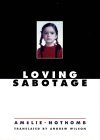 A Month in the Country by J.L. Carr
A Month in the Country by J.L. CarrMy rating: 5 of 5 stars
Although J.L. Carr's "A Month in the Country" was published in 1978, it reads like a classic. It is an enthralling novella of What Might Have Been. People who are on the descending path in their lives, like myself, will understand it better than the young ones. We do not have any future; we only have the past. Most of what we have are the memories of the good times long time gone and we often think of what might have been if we did things differently.
It is the hot August of 1920. Tom Birkin, a World War I veteran is hired to restore a whitewashed, several-hundred-years old mural in a Yorkshire parish of Oxgodby. He meets another veteran, Charles Moon, who has been hired to find remains of a 14th-century character in the same parish. Tom also befriends the stationmaster's young daughter and the vicar's wife,
It is just about a month in the country, but viewed from the perspective of fifty or so years later, the month is a tremendous turning point. What might have been if we did things differently. How totally different our life would be if we just said one word or moved our arm in a different way.
An exquisite fragment of prose can be found here (but it is a kind of a spoiler).
A beautifully written book. A masterpiece of English prose. One of the best books I have read in my life.
Five stars.
View all my reviews












